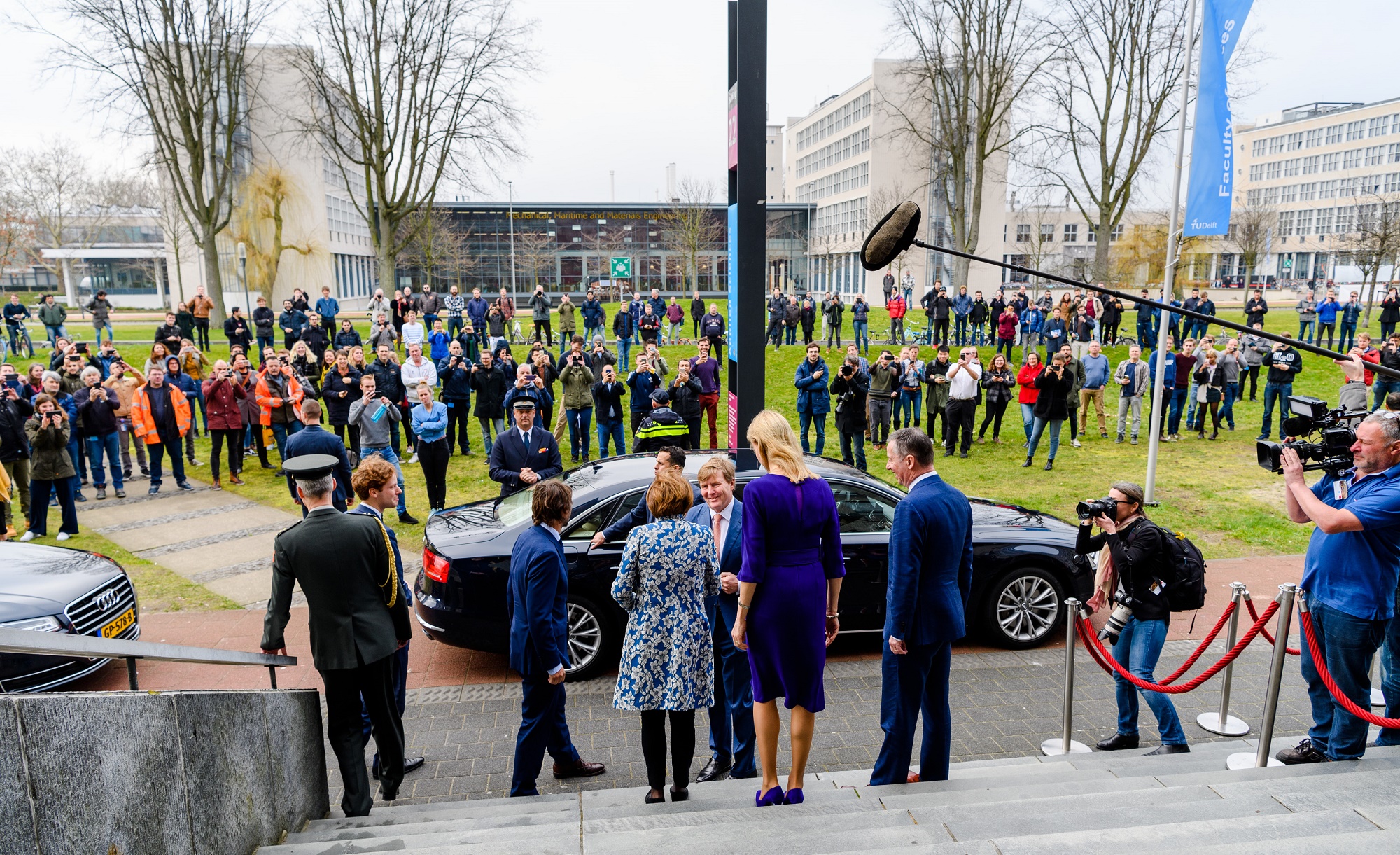A TU Delft article in Nature about majoranas has been retracted because of false data analysis. However, no fraud was committed, say independent experts.
The king visiting the opening of the Microsoft Quantum Lab Delft in February 2019. (Photo: Marco de Swart)
What exactly happened in the lab and the offices of Professor of Quantum Transport Leo Kouwenhoven of QuTech and Microsoft in 2018? Did the researchers deliberately push unwelcome data aside to put peer scientists on the wrong track?
In 2018, Kouwenhoven’s team wrote an article in Nature saying that they had observed majorana particles. The news created a storm. These particles, that are not charged nor have any mass, can be turned into useful qubits (the building blocks of quantum computers).
However, the conclusions in the article, entitled Quantized Majorana conductance, appeared to be incorrect. This was demonstrated by two of Kouwenhoven’s former colleagues, Sergey Frolov and Vincent Mourik, the following year. They asserted that absolutely no majoranas had been observed in the lab. Nature too has come to the same conclusion. The journal officially retracted the article this week on the grounds of errors in the data analysis, errors that Kouwenhoven and his co-authors also confirmed in a new analysis.
‘These are important questions for integrity in scientific practice’
The authors had not included the data that contradicted their hypothesis, and this gave rise to a distorted picture. But there is no evidence of fraud, say experts called in by the TU’s Scientific Integrity Committee, this week.
In a report, the experts propose that the authors were probably ‘caught up in the excitement of the moment, and were themselves blind to the data that did not fit the goal they were striving for. They have “fooled themselves”’. The experts have found no evidence that this was done intentionally.
However, the integrity investigation is not yet finished. Kouwenhoven has made it known that he has made all the raw data available for investigation so that it can be ascertained “whether the errors made at the time were accidental or intentional or if there perhaps was a ‘confirmation bias’. These are important questions for integrity in scientific practice.”
Majorana particles are at the heart of one of the four lines of QuTech research into the development of a quantum computer. Other building blocks for quantum computers are based on superconductors, semiconductors and diamonds, and are also being researched at QuTech.
QuTech and Microsoft are continuing their collaboration in research on the quantum computer, a communications officer at Microsoft told Delta.
One of the former colleagues, Sergey Frolov, announced on Twitter that he is happy that his conclusions have been confirmed. However, he regrets that the Research Integrity Committee did not look into other publications issued by Kouwenhoven’s group. He hopes that this will be done once all the data has been released.
Correction, 13-3-2021
Initially, Delta wrote that the integrity committee had concluded that there was no fraud. However, that is not the case. These are not statements by the committee, but by four experts called in by the committee. The integrity committee is including the findings in its investigation that is sill ongoing.
Do you have a question or comment about this article?
tomas.vandijk@tudelft.nl


Comments are closed.